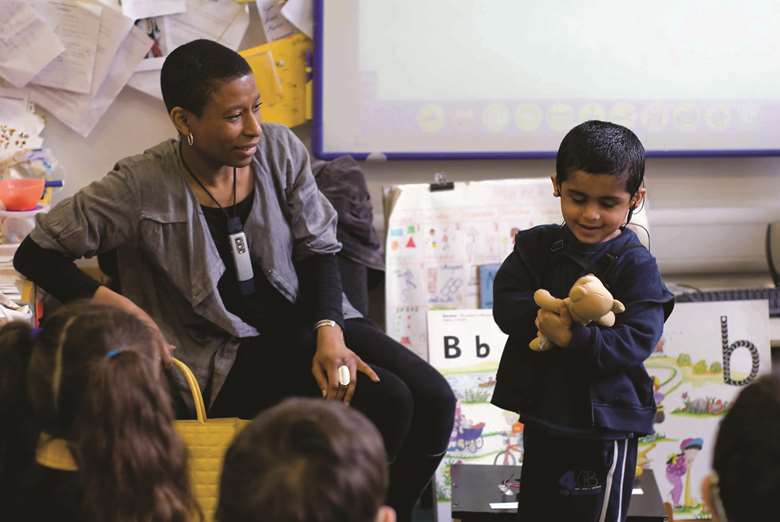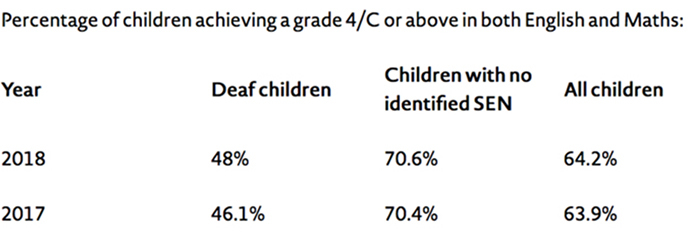Government 'failing deaf children' as grades fall behind hearing classmates
Gabriella Jozwiak
Wednesday, February 13, 2019
Deaf children are falling a whole grade behind their hearing classmates, prompting a charity to warn of a "lost generation".

The National Deaf Children's Society (NDCS) analysis of government data, found that the average GCSE grade for deaf children is 3.9, which used to be known as a grade D.
For a child without special educational needs or a disability, the average grade is 5 - a strong C under the old system.
Councils are facing a colossal shortfall in SEND funding, and the Local Government Association (LGA) has repeatedly issued warnings on the impact.
The LGA has estimated the shortfall could amount to £1.6bn by 2021.
NDCS chief executive Susan Daniels warned it would take more than two decades to close the attainment gap, adding: "The government is starving local councils of funding, meaning their support is cut back and their specialist teachers are being laid off.
"Deafness is not a learning disability, but deaf children are still falling a whole grade behind their classmates.
- Special Report: Special Educational Needs and Disabilities
- Feature: Commissioning: Rethinking SEND support
"The government needs to address the gap in results urgently and begin to adequately fund the support deaf children need.
"It promised every child in this country a world-class education, but until deaf and hearing children progress and achieve at the same level, it is failing to deliver and that is utterly unacceptable."

The Department for Education figures from 2018 also show that less than half all deaf children achieved a standard GCSE pass grade in English and maths last year.
By comparison, in the same year, almost three quarters of children with no identified special educational needs or disability (SEND) passed English and maths with a grade 4.
The charity observed similar gaps for children leaving primary school, with fewer than half of deaf children achieving the expected standard for reading, writing and maths at Key Stage 2, compared with 74 per cent of other children.
At Key Stage 1, when pupils are aged between five and seven, just over half (53 per cent) of deaf children reach the required standard, compared with 84 per cent of their peers.
Anntoinette Bramble, chair of the LGA's Children and Young People Board, said: "Councils know that deafness can make life incredibly difficult for some children who experience it, and are doing all they can to support all children with special educational needs and disabilities to make sure they get the education they deserve," she said.
"However, councils are reaching the point where the money is simply not there to keep up with demand, pushing support for children with SEND to a tipping point."
In December last year the government announced extra funding to meet the costs of educating rising numbers of pupils with SEND, but children's services leaders warned it was insufficient.
A DfE spokeswoman said the department recognised the higher cost pressures on local authorities, which was why it had pledged the extra money.
"Our ambition for children with SEND, including those who are deaf, is exactly the same for every other child - to achieve well in education, and go on to live happy and fulfilled lives," she said.
"The percentage of pupils with a hearing impairment getting either a grade 4 or C or above in both GCSE English and mathematics has increased in recent years but we know there is more to do.
"That is why we have introduced SEND reforms that ensure pupils have access to excellent support throughout their school years."
The government introduced changes to SEND support through the Children and Families Act in 2014, which included replacing SEND statements with education, health and care plans that aimed to deliver better joined-up support from health and social care.
However, since their launch, parents have complained of delays children's services experts have said too little funding was provided to support the new system.




